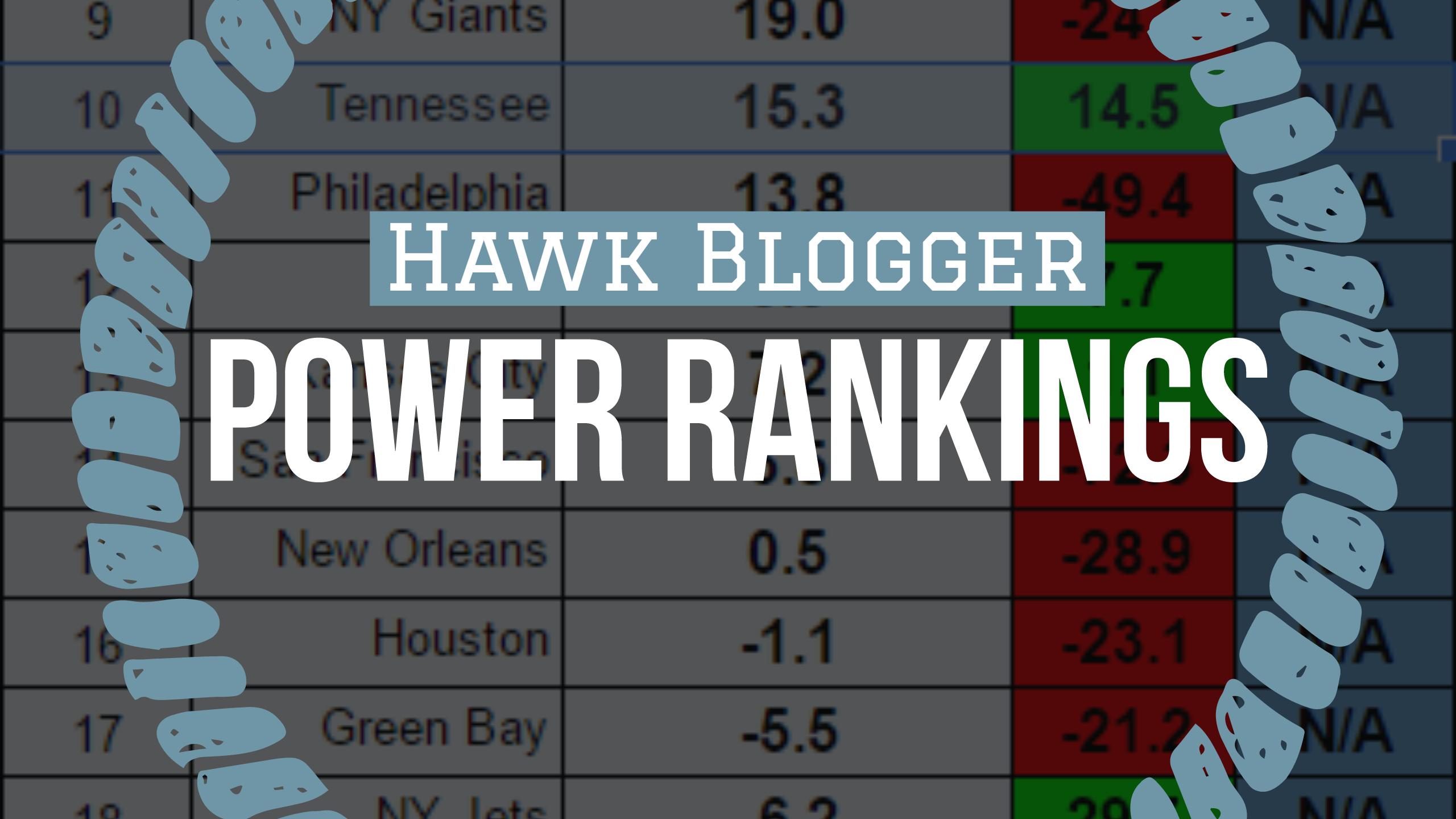Seattle regains the top spot in the rankings after a one-week hiatus. Green Bay was idle, and benefitted from the Chiefs shedding a bushel of team strength in their loss to the Raiders.
There are times when these rankings don’t quite match what my eye is seeing. This happens to be a moment of synchronicity. Looking around the NFL, the Packers are probably the team that gives me the most pause when assessing the Seahawks Super Bowl chances.
Aaron Rodgers is playing the best he has played in years. Both Seattle and Green Bay have played similar schedules in terms of SOS. The Packers has been a smidge tougher. The Chiefs have played a far tougher schedule than either team, and nobody would be wise to dismiss either Kansas City or Baltimore.
The Rams, though, are another team I have my eye on. Their offense is humming and their defense has been stout. They also have played one of the easiest schedules in the NFL so far. Their toughest game was against a Bills team that just got toasted by the Tennessee Covids, and LA lost that game.
Football Outsiders DVOA rankings really like the Bucs. My rankings are less impressed, largely due to their inefficiency in passer rating, where they are only +5.6 compared to a team like Seattle that is +40.1 in passer rating differential.
We get to see how that plays out against the Packers this week in the battle of the Bays.
Seattle has a tough stretch coming up, but their overall future SOS is 8th-easiest. If things stayed as they are, Seattle will have played the five worst teams in these rankings, and six of the bottom ten.
A lot will depend on just how good or bad the Cardinals and 49ers are. Arizona has had the third-easiest schedule to date, and still has two losses. The 49ers are scuffling, but have been injured. They have also had the easiest schedule in the NFL so far, and are under .500.

Rankings Visualization
This view shows tiers of strength that develop over the course of the season.

RANKINGS EXPLAINED
Power rankings are always debatable. I don’t buy into the gut feel methods most places use to determine their rankings, so I developed a formula a few years back that attempts to take at least some of the subjectivity out of the discussion. My approach was simple, I measured offensive and defensive efficiency based on the Yards Per Carry (YPC) and Yards Per Attempt (YPA), as well as points scored and points allowed. The formula to calculate “Team Strength” was as follows:
(YPC (offense) + YPA (offense) + Avg Pts/Game Scored) – (YPC (defense) + YPA (defense)+ Avg Pts/Game Allowed)
The formula has proven to be a pretty accurate predictor of success (roughly 70% of the teams ranked in the Top 10 by week 3 make the playoffs), but I am always looking for ways to improve it. I read a great article on ColdHardFootballFacts.com. There was one gem in there about predicting championship teams. The article mentioned passer rating differential as the “mother of all stats.” A full 69 of 72 champions have ranked in the Top 10 in this statistic. It is a stat after my own heart, as I believe offensive and defensive efficiency is the key measurable outside of point differential. Turnovers would factor in there as well, but I am not convinced a team has as much control over that. My power rankings use YPA and YPC differentials. I went ahead and replaced the YPA with offensive and defensive passer rating, to give me this:
(YPC (offense) + Passer Rating (offense) + Avg Pts/Game Scored) – (OPP YPC (defense) + OPP Passer Rating (defense)+ OPP Avg Pts/Game) As of September 23, 2014, I have added a strength of schedule component to the rankings as well. As of November 22, 2016, I have increased the weighting of the run game and point differential. Yards per carry will be multiplied by 10 to make it more evenly weighted with the passer rating. It is still roughly half as important, but will have a greater impact. Point differential will be multiplied by two as it still should be among the most important aspects of measuring teams.
